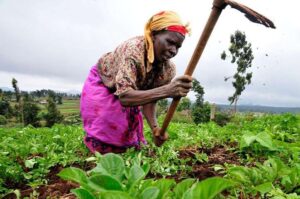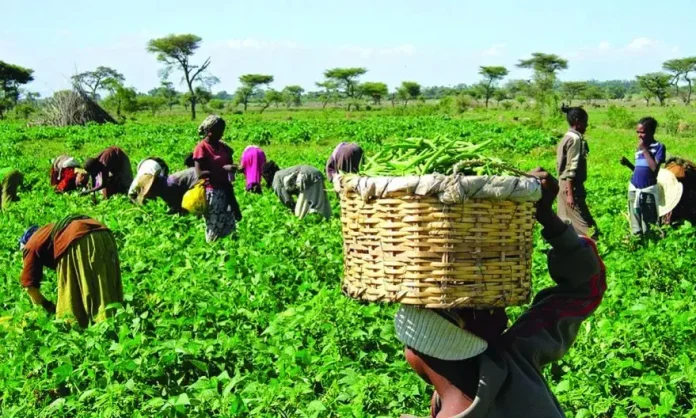A coalition of Ghana’s leading agricultural associations has declared a nationwide boycott of the 2025 Farmers’ Day celebrations, citing deep frustration with the government’s failure to purchase locally produced rice, maize, and soya, as previously promised. The joint statement, issued on Wednesday 29 October 2025, states that rice producers and millers, maize farmers, mechanisation service providers, input dealers and other key players in the agricultural value chain will withdraw from district, regional and national events in protest of neglected commitments.
The boycott marks the first time in the history of the annual event that such a large-scale protest has been orchestrated by farmer groups. The statement explained that the action reflects a “united stand for survival” after repeated government assurances, including a public statement by the Ministry of Food and Agriculture on 23 September 2025 promising that locally-grown rice and maize would be purchased through the National Food Buffer Stock Company (NAFCO), have gone unfulfilled.
Leading the boycott are organisations such as the Peasant Farmers Association of Ghana (PFAG), the Ghana National Association of Farmers and Fishermen (GNAFF), Ghana Rice Inter‑Professional Body (GRIB), the General Agricultural Workers Union (GAWU), the Association of Rice Producers and Millers, and myriad input dealers and agribusiness associations.

The key grievances raised by the groups include the government’s inaction on the purchase of surplus production, the flooding of the market with cheap and purportedly smuggled rice imports, expired imported stock competing with local produce, and what they see as an absence of a coherent long-term import management policy. According to the statement, more than 200,000 metric tonnes of paddy rice from the 2024 harvest remain unsold in warehouses across the Upper East, Northern and North East regions. With Ghana’s 2025 rice output projected at 1.5 million tonnes, farmers warn the glut will worsen.
In their list of immediate demands, the coalition calls for:
1. A six-month suspension of all foreign rice imports beginning November 2025, with tighter border controls;
2. A national import-management strategy aligned with domestic production capacity;
3. A directive that public institutions, including schools, hospitals, prisons and security agencies, procure their rice and maize exclusively from local farmers;
4. Immediate release of funds by the Ministry of Finance to the National Food Buffer Stock Company for the purchase of surplus produce;
5. The introduction of a guaranteed minimum price for rice and maize to protect producers from exploitation.
The decision not to participate in Farmers’ Day is both symbolic and strategic. The farmers emphasised that the boycott is not a rejection of the celebration itself, but rather a protest against policies and practices they say undermine their livelihoods. “We cannot celebrate while our livelihoods collapse,” the statement read.

The move comes at a time when Ghana’s agricultural sector faces mounting pressures: rising input costs, climate-related challenges, weak access to mechanised services, and depreciating currency adding to the cost of imported fertilisers and equipment. Against this backdrop, the failure to purchase local produce is viewed by farmers as a breach of trust. “Despite repeated assurances, farmers are still waiting. No action has been taken and the situation has left many producers unable to sell their harvests,” the joint release said.
Observers say the boycott carries significant risk for the government’s public image ahead of the regional and national Farmers’ Day events, traditionally used to award and publicly recognise outstanding farmers. With key producer groups set to stay away, the government may face reputational damage, especially as the agricultural sector is central to Ghana’s economy and to food security.
Political commentators note that the boycott could also impact rural voter sentiment, particularly in regions where agriculture is the primary livelihood. If the farmers’ demands are not met swiftly, the move could influence upcoming local or national political dynamics.
On the government side, responses have yet to be widely published. It is expected that the Ministry of Food and Agriculture and NAFCO will engage with the coalition to find a resolution and avert further escalation. The broad participation of producer groups, including mechanisation service providers and millers, signals that the protest extends beyond just crop sellers and taps into wider supply-chain frustration.


Economists warn that if the produce remains unsold, the financial consequences for many smallholder farmers may be severe, threatening farm closures, job losses in processing plants and millers, and increased vulnerability in food value chains. The output glut could also lead to storage and spoilage costs that further burden the sector.
As it stands, the boycott sets a critical test for the government’s commitment to supporting the agriculture sector not just through laudable statements but through timely implementation and fiscal backing. With the 2025 Farmers’ Day less than a month away, all stakeholders will be watching whether the government responds promptly or allows the boycott to broaden into a larger mobilised protest.

